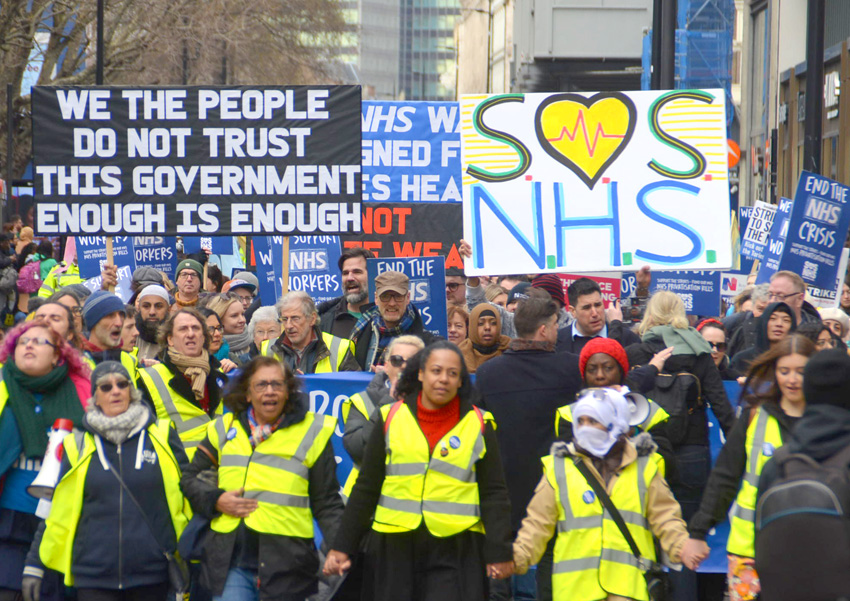THE NHS requires an additional £38bn annually by the end of the next parliament to address the care backlog and reduce prolonged treatment delays, political parties have been warned.
According to the Health Foundation, the commitments made by Labour and the Conservatives regarding NHS funding ‘fall well short’ of what is necessary for the struggling health service to recover from prolonged underinvestment.
The foundation also noted that politicians are not being transparent with the public about the financial requirements needed to revitalise an NHS contending with record care waiting lists, insufficient GP access, and declining public satisfaction.
The think tank stated that the NHS will necessitate such substantial funds to meet the growing demand for care that the next government will face ‘difficult trade-offs’ in resource allocation. Without adequate funding in the forthcoming years, the recent promises to enhance the NHS will remain unfulfilled.
Current spending plans indicate that the Department of Health and Social Care’s budget will increase by £7.6bn to £196.9bn by 2029/30. However, this budget would need to rise by an additional £38bn to £235.4bn to achieve ‘sustained improvement’ in the NHS’s performance, as projected by the Health Foundation’s modelling.
Anita Charlesworth, director of the think tank’s long-term economic analysis department, remarked: ‘The health service is in crisis, and the main political parties have pledged to rectify it. Yet, the funding they have promised so far is significantly below what is required to make meaningful improvements.’
To keep pace with the ageing, growing, and increasingly ailing population, the NHS will need average annual budget increases of 3.8% over the next decade, the think tank calculated. This percentage is substantially higher than the anticipated rate of economic growth (1.9%) and the planned rise in public service spending (1.6%) during that period. It also surpasses the 0.8% projected rise in health spending by the Office for Budgetary Responsibility, the think tank added.
The analysis indicated, ‘Addressing the funding needed to improve the NHS would involve confronting difficult trade-offs with funding required for other public services and taxation levels. The election debate has so far been marked by a “conspiracy of silence” about the public spending and taxation choices the next government will face.’
NHS leaders have supported the Health Foundation’s findings. Dr Layla McCay, the NHS Confederation’s director of policy, stated: ‘Put simply, if a new government is to honour campaign promises to address NHS backlogs and enhance performance, further investment will be required.’ She added that the NHS will need ‘billions in extra funding’.
Julian Hartley, the chief executive of NHS Providers, emphasised that health trusts urgently need more capital funding to address the impacts of ‘chronic underinvestment in buildings and facilities’, which has rendered some hospitals so dilapidated that they ‘endanger patient and staff safety’.
